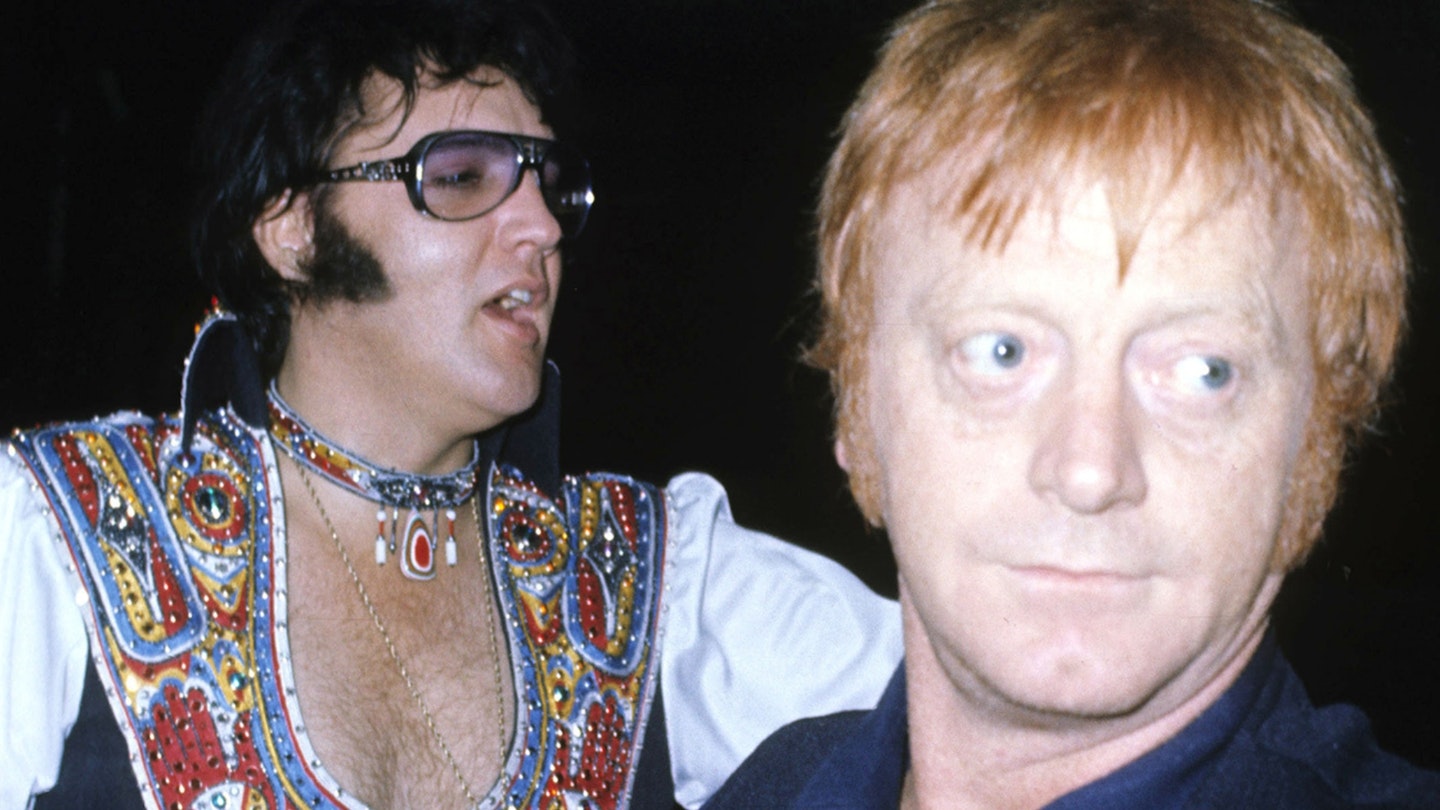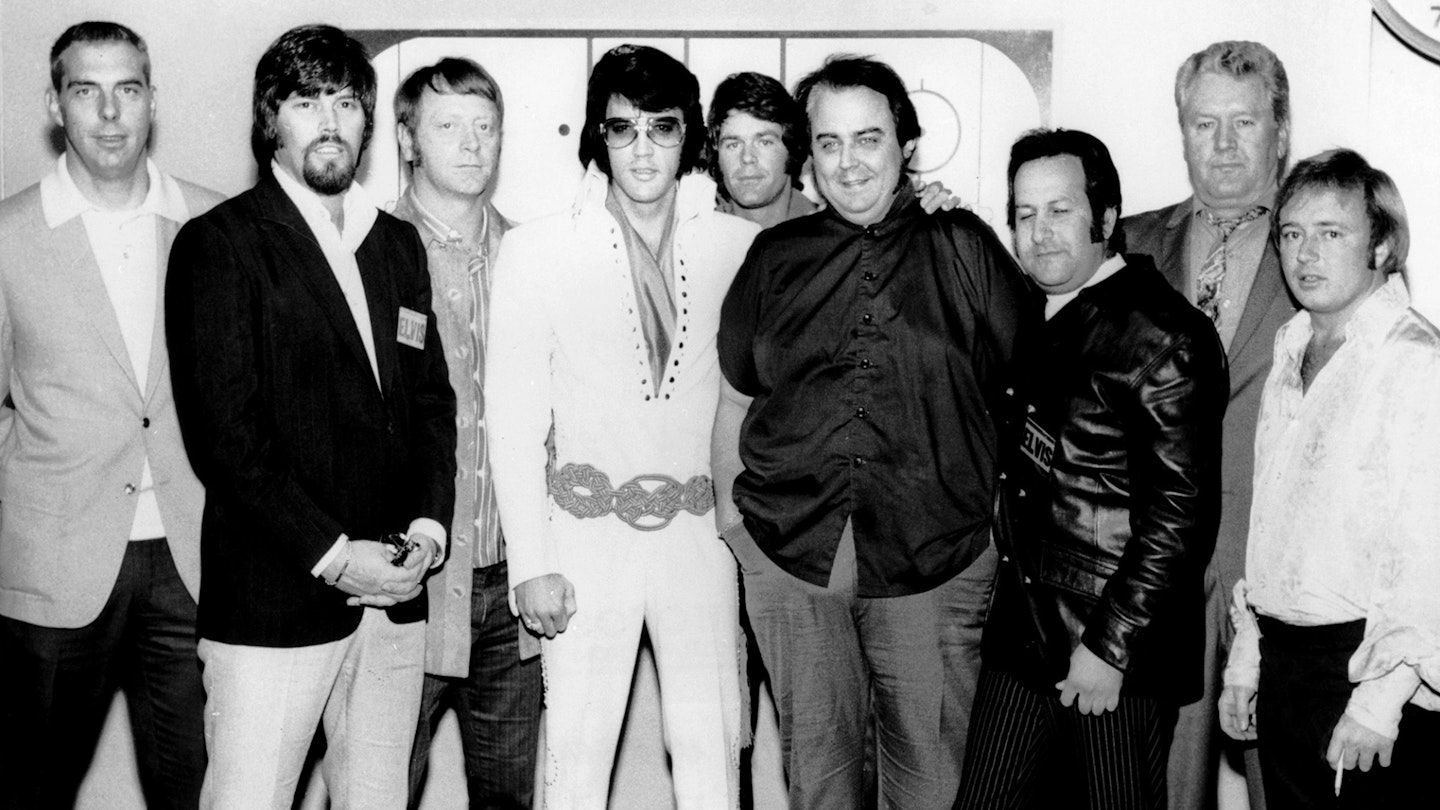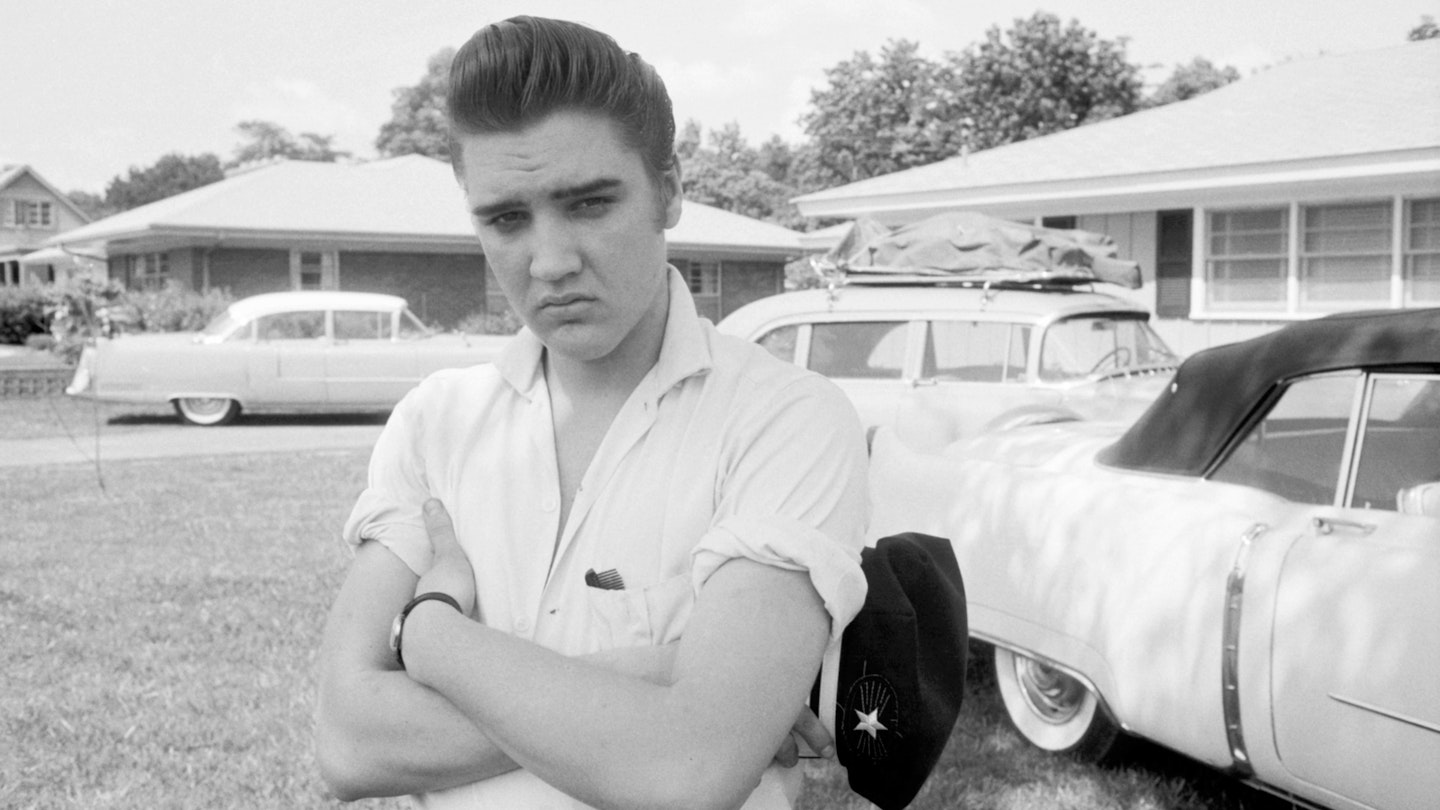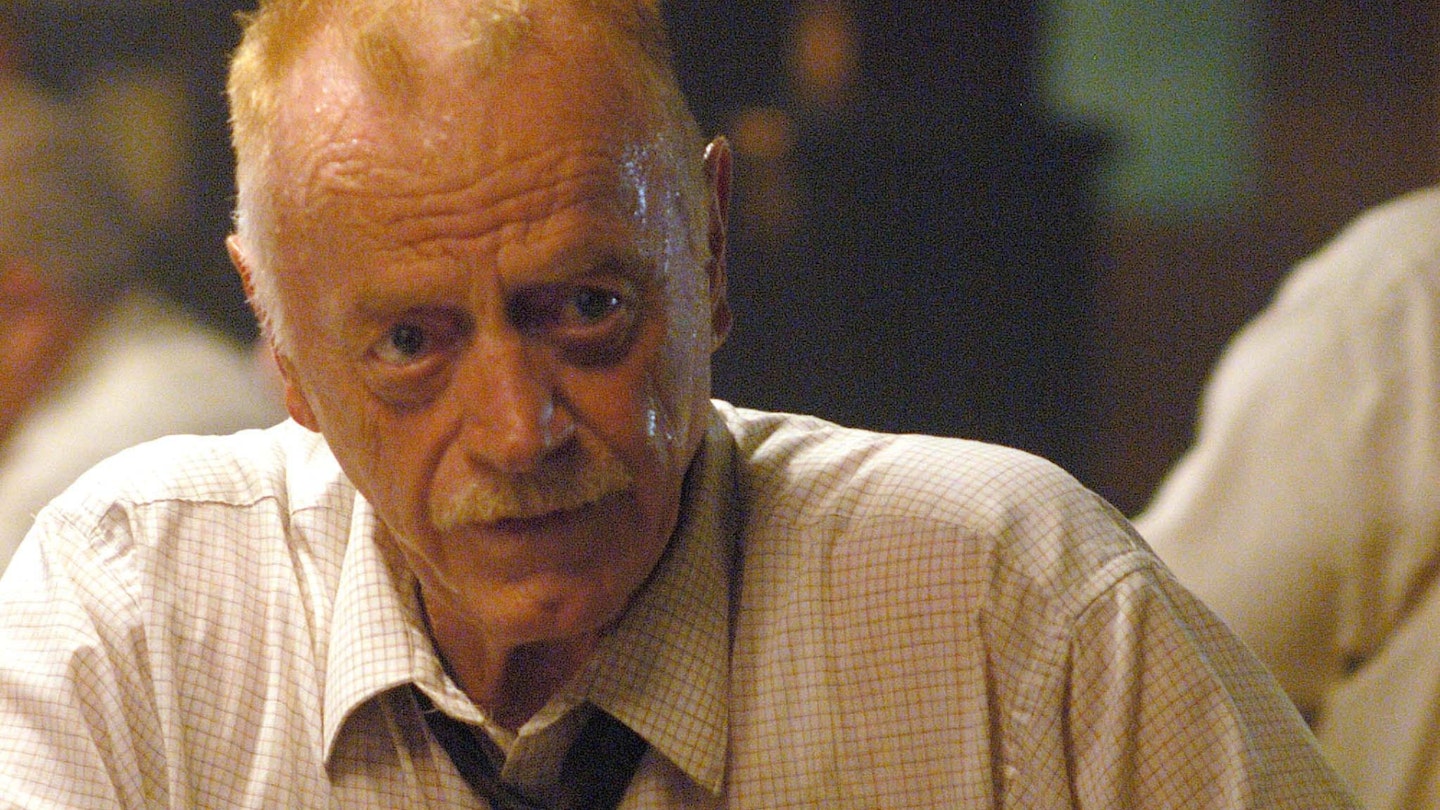From driver to minder, stuntman to songwriter. For two decades Red West was at – and on – Elvis Presley’s side. David Reid discovers why The King’s close friend and right-hand man ultimately betrayed him
Robert Gene ‘Red’ West was there from the start. He was one of the first of Elvis Presley’s so-called Memphis Mafia entourage. On the surface, Red’s initial jobs were as driver and bodyguard, but essentially Elvis, who hated being alone, liked having Red around. As Presley’s career progressed, Red took on a variety of practical and creative roles and forged successful parallel careers of his own. Red wasn’t always there though; his tendency to be hot-headed and violent combined with a personality clash with Elvis’ father, Vernon, saw him periodically fired or angrily storming off. But he always returned and remained loyal; until their relationship slowly collapsed, in tandem with Presley’s physical and mental health, and both men did and said things they would not have time to take back.

Elvis’ saviour
Red first noticed Elvis at high school in Memphis. West was the star of the school football team while young Elvis stood out for the wrong reasons. Red remembered, “I really felt sorry for him. He seemed very lonely and had no real friends. And he would wear a coat and fashion a scarf like an ascot tie, as if he were a movie star. Of course he got a lot of flak…” One pivotal day Red came to Elvis’ rescue. He recalled, “…luckily I walked into the boys’ bathroom… and three guys were going to cut his hair just, you know, to make themselves look big …and I intervened and stopped it.” West surmised that Presley didn’t forget his intervention when, “…a couple of years later after Elvis had his first record he came over and asked me if I would like to go with him… and I went and I was with him from then on…”
As Elvis’ success grew, his inner circle expanded. Alongside Red, early cohorts included Elvis’ cousin Gene and Red’s cousin Sonny. While the singer thrived on companionship, this never sat well with either his thrifty father or wily manager Colonel Parker. By the spring of 1956 Elvis’ star was rising fast and, while he could do no wrong, the Colonel was quick to lay the blame for mishaps on ‘the boy’s’ friends. On one occasion they arrived late at a venue. It was Elvis’ fault but the Colonel laid into his driver, as Red described, “He just looks at me as if he was going to rip a yard from my ass. Right away he starts in, ‘Where in the hell you been? Do you know what time is? I got people waiting, and you’re damn well late’.”
That August, tensions between Red and Vernon came to a head. Just before Elvis’ departure to film Love Me Tender (1956), Red got into a fight and Vernon said he didn’t want him around. Upset that Elvis failed to defend him, West left and joined the Marines. They reunited over a year later in Hollywood during the filming of King Creole (1958) and afterwards Red Joined Elvis in Germany for his military service.

After his discharge in 1960 Elvis headed back to LA with associates including new ex-army friend Charlie Hodge, also a talented musician. Red was already in Hollywood working as a stuntman on The Rebel (1959-61) but met up with Presley on the set of his picture G.I. Blues (1960). West went on to work on almost all Elvis’ subsequent movies as a stuntman and actor. Next Red set his sights on songwriting. He said, “I learned to play guitar from Scotty Moore. I hooked up with [brothers] Dorsey and Johnny Burnette who were writing for Ricky Nelson. They’re from Memphis… I said ‘heck, you guys can write, and I can write’.”
Red’s early songs recorded by Elvis included You’ll Be Gone and That’s Someone You Never Forget. Both co‑written with Charlie Hodge, based on loose ideas suggested by Presley himself. Red continued to pitch material to Elvis, including the 1973 hit, Separate Ways.
Cracks appear
Meanwhile Elvis, dissatisfied with the increasingly formulaic direction of his career, relied on Red more and more. In June 1966, he refused to show up for a recording session, sending Red to cut ‘reference vocals’ in his place. The following September, he handed over the job of song selection for the movie, Easy Come, Easy Go (1967) to Red.
But behind the scenes cracks were appearing. Red and the guys were irritated by the presence of Elvis’ hairdresser, turned ‘spiritual advisor’ Larry Geller who recalled Red attacking him in a fairground bumper car, “He came at me as if he were protecting Elvis from me. Maybe in his mind he was. ‘I’m going to kill you!’ he screamed.” Then in 1967, when he discovered he had not been invited to attend Elvis’ wedding ceremony, just the reception, Red was so hurt he didn’t go at all.

Events took a positive turn as the decade ended when Elvis called time on his stalling movie career. He triumphantly celebrated both his legacy and return to live performance with the seminal 1968 Comeback Special and then topped that with From Elvis in Memphis, his strongest album in years.
It didn’t last. As the Seventies unfolded, creativity gave way to relentless Vegas residencies and live albums. Elvis, already reliant on amphetamines and sleeping pills, was now taking a cocktail of prescription drugs. In October 1973 he was admitted to hospital, swollen and having breathing difficulties. He was losing it, and Red West was one of the few who dared tell him. But Elvis did not like being told.
Red sadly concluded, “I don’t think he ever knew it was a problem… I would say, ‘What do you think’s causing this?’, he’d say just a problem with his stomach.”
Unfortunately West’s outspoken concern did not help either Presley or himself. In July 1976 Red said, “…his dad called me, took Sonny and (bodyguard) Dave Hebler in and said, ‘We’re cutting back on expenses and I’m afraid you guys are gonna have to go’. I left, that was it. But I tried.”
Red’s revenge?
Now broke, Red, Sonny and Hebler worked on a controversial tell‑all book with journalist Steve Dunleavy, Elvis: What Happened?. It was serialised in the UK in May 1977, before being published in the US just weeks before Elvis passed away.

Red and Elvis had one last phone call with a slurring Presley rambling about his father’s illness and ‘people’ trying to prove him insane. At one point Red told Elvis of his hurt at being fired: “I understand. But if I had just heard from you, it would have been easier to take.” Presley replied: “Well, in doing business… I don’t do that.”
Elvis’ girlfriend Linda later explained that Elvis left the unpleasant deed of firing Red and the others to his father because, “he never wanted to be the bad guy.”
But what was the point of the book? West claimed they were trying to help his friend, but surely this was for the money or revenge? In a 1999 interview, Red had the last word, admitting, “I wrote it for money and to try to help him. You’re gonna dwell on this goddam thing? I’m sorry you feel that way but I loved the man very much.”
Did you know?
Red West guest starred in many films and TV shows including The Wild Wild West, The A-Team, The Fall Guy, Roadhouse and Natural Born Killers. His final film role was in the 2013 thriller, Safe Haven.
